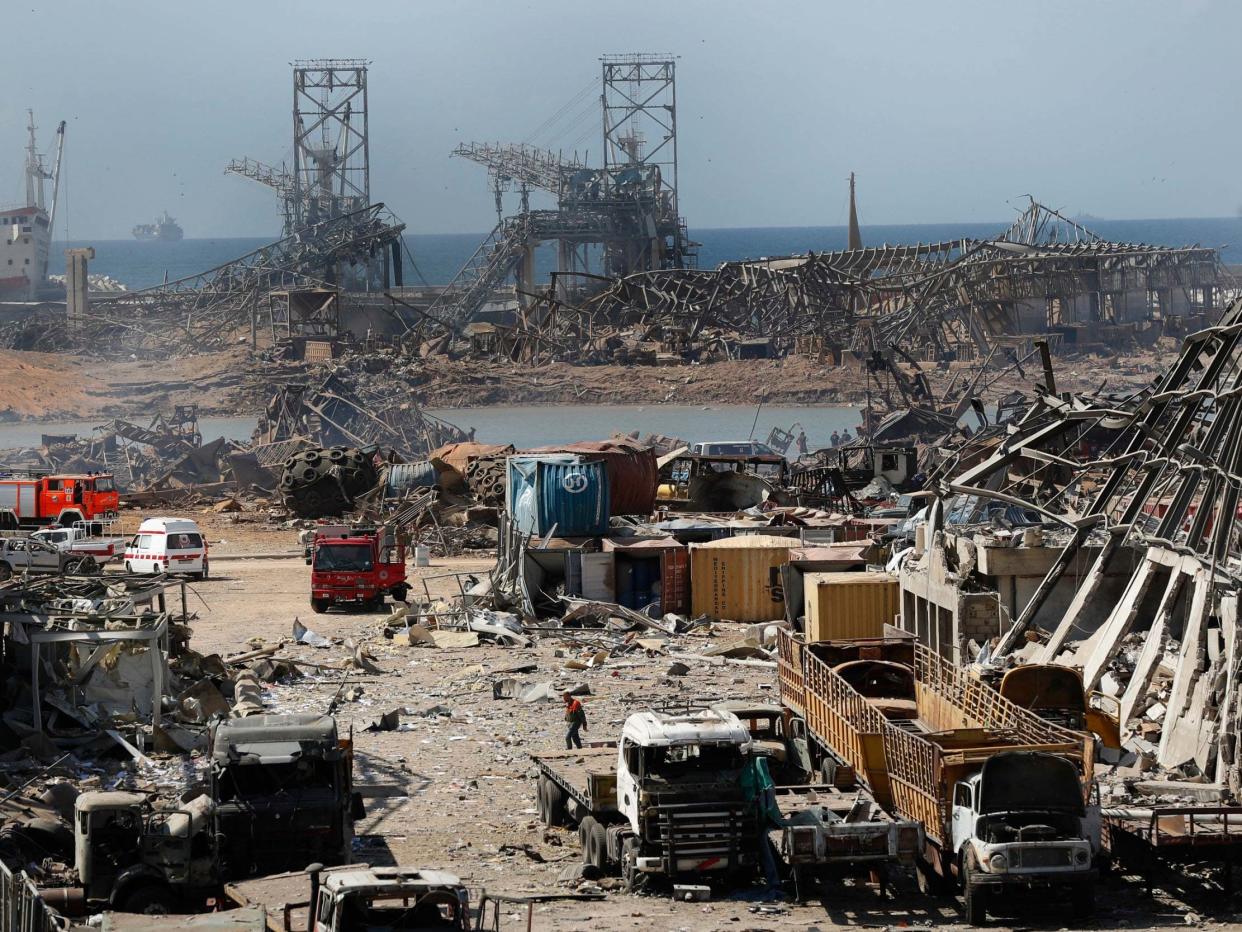Beirut explosions: Lebanon announces state of emergency and places port officials under house arrest

Lebanon’s cabinet has declared a two-week state of emergency in Beirut following a massive explosion in the port that rocked the city on Tuesday, killing at least 110 people.
Beirut’s port officials who were responsible for storage and security since 2014 have also been placed under house arrest, and control of security in the capital had been handed to the military.
The army will oversee the house arrest until responsibility is determined for the huge explosions that devastated the city, ministerial sources told Reuters.
It is not clear how many officials will be included or their seniority level.
The cabinet also approved an exceptional allocation of 100 billion Lebanese pounds to deal with the crisis. The sum is notionally worth $66 million based on the official exchange rate of 1,500 pounds to the dollar, but is effectively worth some $13 million based on the latest rate on the parallel market, which stood at around 7,500 in the days before the explosion.
The blast, which happened on Tuesday, killed at least 110 people and injured more than 4,000 others.
More than 100 people are also believed to still be missing.
There have been no reports of British fatalities in Lebanon so far, PA news agency understands, as rescue workers continue to search for survivors.
Lebanon president Michel Aoun said the explosion was caused by 2,750 tonnes of ammonium nitrate, an industrial chemical used widely in fertilisers, being stored unsafely in a warehouse for six years.
An unnamed official source told Reuters an initial investigation suggested the port blast was caused by years of inaction and “negligence”.
The source said a fire started at port warehouse 9 on Tuesday and spread to warehouse 12, where the ammonium nitrate was stored.
Another source close to a port employee claimed a team that inspected the material six months ago warned it could “blow up all of Beirut” if not removed.
The head of Beirut port and the head of customs both claimed on Wednesday that several letters were sent to the judiciary asking for the dangerous material be removed, but no action was taken.
Hassan Koraytem, general manager of the port, told OTV Lebanon the material had been put in a warehouse on a court order, adding that they knew then the material was dangerous but "not to this degree".
Tuesday’s explosion was the most powerful ever suffered by Beirut, a city still scarred by civil war three decades ago and reeling from a deep financial crisis rooted in decades of corruption and economic mismanagement.
Additional reporting by agencies
Read more
Before the blast, corruption had brought Lebanon to its knees


